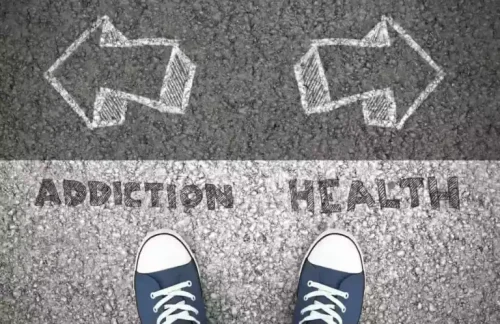
However, a general guideline is to aim for at least eight 8-ounce glasses of water per day, also known as the 8×8 rule. Additionally, adequate hydration helps to flush out toxins and waste products from the body. Water acts as a natural detoxifier, aiding in the elimination of alcohol byproducts through urine and sweat.

Treatment Options at Recreate Behavioral Health
If you have been drinking heavily, alcohol can continue to show up in your urine for up to 72 hours or more. Alcohol will show up on a saliva alcohol test up to 24 hours after you have stopped drinking. This https://ecosoberhouse.com/article/dealing-with-peer-pressure/ is also the case for breathalyzer tests or breath alcohol tests. The Centers for Disease Control and Prevention (CDC) recommends that adults get at least seven hours of sleep per night. A urine test can detect alcohol for 2 to 3 days after the last drink.
- The short-term effects of alcohol can be broken down into three areas.
- For most people, alcohol is absorbed into the system more rapidly than it is metabolized.
- Consuming alcohol faster than the liver can metabolize it leads to increased blood alcohol concentration (BAC), which can result in intoxication and impairment.
- Incorporating regular exercise into your routine not only aids in flushing out alcohol but also improves overall well-being.
- Ethyl glucuronide (EtG) tests can even detect alcohol byproducts in the body for up to 80 hours after consumption, long after the visible effects of intoxication have worn off.
Recovery Story: Sam and Her Mother
You’ll experience further loss of memory, balance, and coordination. Moderate impairment can also make you more likely to engage in risky behaviors such as driving under the influence or becoming aggressive with others. You can also help your body metabolize alcohol by avoiding highly processed foods and drinks like chips, white bread, and soda.
What role does exercise play in expediting alcohol elimination?
Contact Recreate Behavioral Health to work with compassionate clinicians and therapists who are dedicated to helping you achieve a healthier, substance-free life. Engaging in physical activity is an essential component of the alcohol detox process. Exercise offers numerous benefits for both the mind and body during this period of recovery. In this step, we will explore the benefits of exercise during detox and provide suitable exercises to incorporate into your routine.
In general, heavy drinking requires your body to work harder to flush out alcohol and clear it from your system. If you often find yourself trying to speed up the recovery from a standard drink or several, a structured approach to detox may be beneficial. Ensuring proper hydration is the first step towards supporting your body’s natural detoxification process.
Tips for Mindful Drinking
That’s why heavy drinking can cause a variety of alcohol-related diseases and disorders. Factors that determine how long alcohol stays in your body include liver size, body mass and the amount of alcohol consumed. A small amount of alcohol is removed from the body through sweat, urine and respiration. Alcohol can be detected in sweat, urine and the breath for at least as long as the liver is breaking down alcohol. Symptoms of alcohol withdrawal may start a few hours after you stop drinking. Working out does not directly flush out alcohol from your body per se, but it helps keep you healthy, active and invigorated.

Incorporating a balanced and nutritious diet, along with the other essential steps of alcohol detox, can help you effectively flush alcohol from your system and embark on a healthier path. It is recommended to consult with healthcare professionals for personalized guidance and support throughout the alcohol detox process. In order to get alcohol out of your system, you have to understand how long it can stay in your body.

Mindful drinking is about being aware of why and how much alcohol you consume. It involves paying attention to the taste and your body’s signals, helping you enjoy a few drinks without overindulging. Whether it’s for health reasons, a work commitment, or just the desire to avoid a hangover, finding ways to expedite alcohol metabolism is a common quest. Individuals with more body fat generally have a higher BAC because low-water fatty tissue cannot absorb alcohol as well as high-water muscle tissue can. Whether you’ve eaten or drank something that how to flush alcohol out of your system expired a little too long ago, or had one too many alcoholic drinks at a holiday party, Activated Charcoal can help to “mop up” the toxic aftermath. My coconut charcoal can also help to bind to potentially irritating proteins, such as casein and gluten.
If you’ve ever been hungover or intoxicated to the point of feeling sick, you’ve probably wondered how to make the experience end. Chances are, you’ve probably asked yourself, “how can I flush this alcohol out of my system? ” There’s no easy way to get alcohol out of your system more quickly than normal, but there are ways to ease the symptoms and help the detoxing process go more smoothly.
Table of Contents
Eating complex carbohydrates like toast, crackers, and bagels can help alleviate nausea and bring your blood sugar levels back up. Addressing nausea is important to prevent vomiting that can further dehydrate you. Zinc deficiency can hinder the effectiveness of hepatic enzymes that break down alcohol, which intensifies and prolongs the effects of alcohol intoxication.